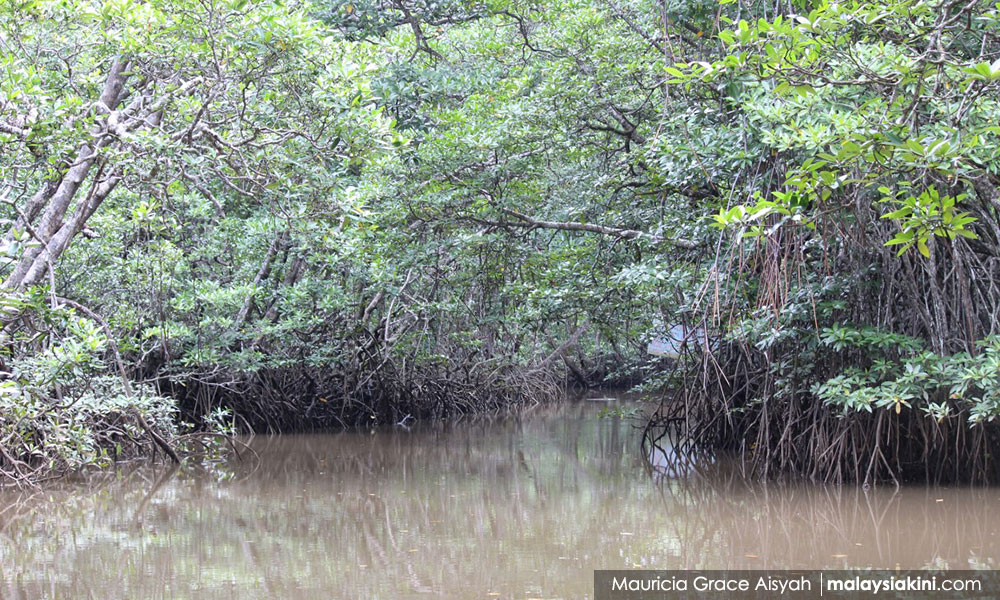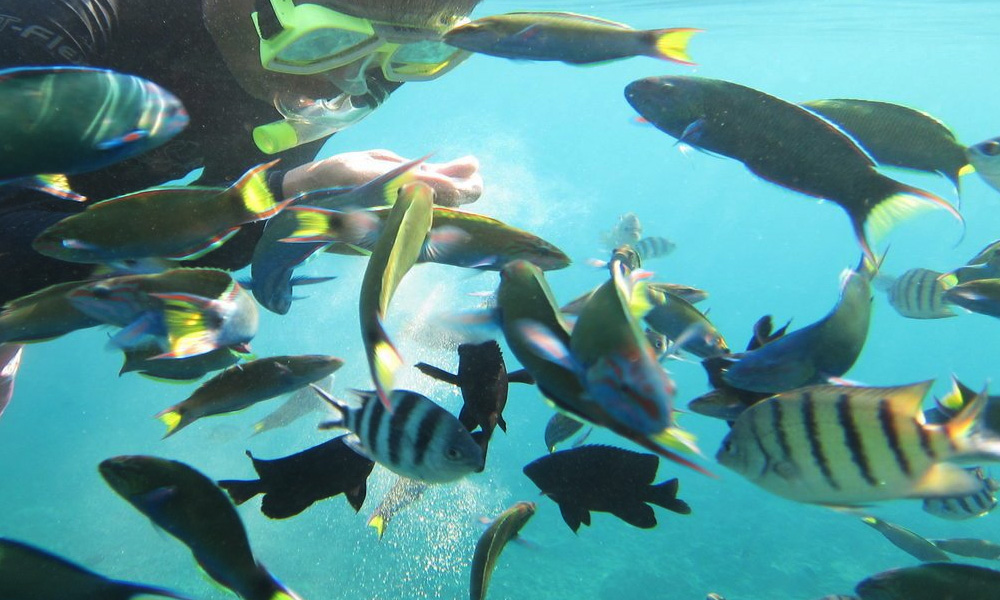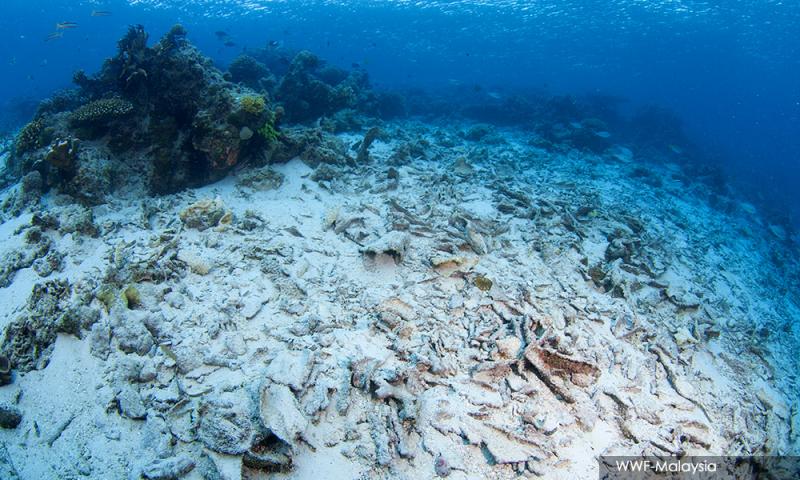LETTER | A perfect storm - Our oceans are drowning
LETTER | On this occasion of World Oceans Day, it is crucial to acknowledge the undeniable truth: the fate of our oceans is intricately intertwined with the global climate crisis.
Our oceans hold profound significance, providing abundant resources, sustaining coastal communities, and critically regulating the global climate.
They are not only essential for our cultural heritage and everyday lives but are also the lifeblood of our planet. It is imperative to recognise the immense significance of the oceans and the urgent need to protect and restore them.
However, our oceans are drowning in a crisis of our own making. The relentless onslaught of plastic pollution, overfishing, habitat destruction, and climate change has pushed our marine ecosystems to the brink. Plastic waste, in particular, has become an insidious threat, choking marine life and infiltrating every corner of the ocean.
The reckless pursuit of convenience has led to the proliferation of single-use plastics that persist for centuries, suffocating marine animals and disrupting the delicate balance of marine ecosystems.

Overfishing, driven by unsustainable practices and growing demand for seafood, is depleting fish stocks and disrupting food chains. Our coastal habitats, including mangroves and coral reefs, are being destroyed at an alarming rate, further compromising the resilience of our oceans.
These factors, combined with rising sea levels, temperatures, and acidification due to climate change, have created a perfect storm, pushing our oceans to the brink of collapse.
The impacts of climate change are reverberating worldwide, with profound consequences for children.
According to Unicef, currently, 530 million children live in flood-prone areas, and by 2040, one in four children will face extreme water stress. Rising sea levels result in saltwater intrusion, making freshwater sources undrinkable, affecting small island developing states and coastal areas where a significant portion of the global population resides, including Malaysia.
The blistering heatwave currently scorching our planet is a stark reminder of the climate crisis we face.
It is crucial to recognise the oceans as critical regulators of our climate. They absorb and redistribute tremendous amounts of heat, acting as a lifeline for the planet. Yet, rising temperatures are wreaking havoc on coral reefs, disrupting marine ecosystems and eroding coastal communities.

Protecting our oceans is not a choice but an imperative if we are to mitigate the impacts of climate change and secure a livable future for all. The time has come for bold action, unwavering commitment, and a complete overhaul of our relationship with the oceans.
There are actionable steps we can take to address the ocean crisis and contribute to the fight against climate change. Supporting sustainable seafood is a decisive action. By consciously choosing sustainably sourced seafood and looking for eco-labels such as the Marine Stewardship Council (MSC) or Aquaculture Stewardship Council (ASC) certification, we can support fisheries and aquaculture operations that prioritise sustainable fishing practices and the conservation of marine biodiversity.
Encouraging food producers and suppliers to apply for these certifications and urging consumers to choose products bearing these eco-labels can drive positive change and contribute to our marine ecosystems' recovery and long-term health.
Participating in coastal clean-ups is a hands-on way to make a direct impact. By organising or joining coastal clean-up activities, individuals can contribute to removing plastic debris and other pollutants that endanger marine life. These events also raise awareness about the importance of ocean conservation and inspire others to take action.
For instance, in Malaysia, the annual International Coastal Clean-up Day (ICC) serves as a remarkable example of community-driven efforts. Coordinated by Reef Check Malaysia, the nationwide campaign covers over 394km of coastline and involves thousands of volunteers. In the previous year's campaign, 24,301kg of rubbish was collected, highlighting the significance of local initiatives and the urgent need for environmental policy implementation in safeguarding our coastal ecosystems.
Malaysians can contribute to preserving marine life and promoting sustainable practices through local clean-up efforts like ICC.

Practising responsible tourism is crucial for protecting our oceans. Malaysia is blessed with stunning coastal destinations that attract tourists worldwide. As travellers, we can minimise our impact by choosing eco-friendly accommodations, engaging in activities that respect marine life and their habitats (such as snorkelling or diving with responsible operators), and following proper waste disposal practices to prevent pollution of coastal areas. By being conscious travellers, we can preserve the beauty of our oceans for future generations to enjoy.
Engaging in ocean education and advocacy is another decisive action we can take. We can make a significant impact by educating ourselves and others about the importance of ocean conservation, staying informed about local and global marine issues, and using social media platforms to raise awareness and advocate for change.
Joining or supporting youth-led organisations or campaigns focused on ocean conservation and climate action can amplify our collective voice and drive meaningful change.
Research shows that ocean-based climate solutions have the potential to deliver up to 21 percent of the annual greenhouse gas emission cuts needed by 2050 to limit global temperature rise to 1.5 degrees Celsius.
Protecting and restoring marine ecosystems like mangroves, seagrasses, and coral reefs can enhance their capacity to sequester carbon dioxide and regulate the climate. Supporting renewable energy sources such as offshore wind farms and harnessing the power of ocean currents and tides can also contribute to reducing greenhouse gas emissions.
By recognising the role of oceans in climate regulation and advocating for ocean-based climate solutions, we can contribute to a more sustainable future for our planet and oceans.
Far-reaching consequences
The Malaysian government's recent decision to lift the ban on renewable energy export marks a significant milestone in its journey towards a greener future. It aligns with Malaysia's commitment to enhance its green economy policy and achieve a renewable energy supply of 70 percent by 2050. This proactive step reduces reliance on fossil fuels, cuts greenhouse gas emissions, and inspires other nations to accelerate their renewable energy efforts.
By capitalising on abundant resources and implementing supportive policies, Malaysia can unlock its full potential for clean energy production.
The crisis in our oceans is not isolated; it has far-reaching consequences for our planet's climate. Oceans act as vital regulators of the global climate, absorbing and redistributing heat and carbon dioxide.
However, the sheer magnitude of human-induced greenhouse gas emissions has overwhelmed their coping capacity. As our atmosphere warms, the oceans absorb significant excess heat, leading to rising sea temperatures and the intensification of extreme weather events. These changes disrupt marine ecosystems, causing coral bleaching, species migration, and biodiversity loss.
Additionally, as carbon dioxide dissolves in seawater, it triggers ocean acidification, posing a severe threat to marine life, especially those with calcium carbonate shells or skeletons. The deteriorating health of our oceans further exacerbates climate change, creating a vicious cycle that requires urgent attention and action.
To combat climate change effectively, we must prioritise restoring and protecting our oceans, recognising their critical role in maintaining a stable climate for our planet.
On this momentous occasion of World Oceans Day, let our voices reverberate across the seas, shaking the foundations of apathy and ignorance. The oceans are calling out to us, beckoning us to rise above the superficial, challenge the status quo, and reclaim our role as custodians of this precious planet.
We must be relentless in our pursuit of a sustainable future, refusing to settle for token gestures. We demand action, accountability, and a radical shift in our relationship with the oceans. The time for half-measures is over. Together, we can forge a new path toward a thriving and resilient ocean for future generations.
MOGESH SABABATHY is the youth climate champions consultant for Unicef Malaysia and co-founder of Project Ocean Hope.
The views expressed here are those of the author/contributor and do not necessarily represent the views of Malaysiakini.
RM12.50 / month
- Unlimited access to award-winning journalism
- Comment and share your opinions on all our articles
- Gift interesting stories to your friends
- Tax deductable
